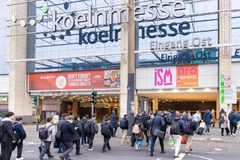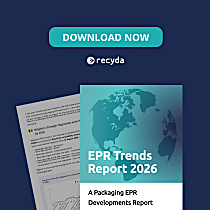Plastic reduction or distraction? UK gov faces greenwash backlash over “staggering” carrier bag charge results

05 Aug 2022 --- Recent figures published by the UK’s Department for Environment, Food and Rural Affairs (Defra) suggest a “staggering 97%” reduction in single-use plastic bag purchases since the introduction of a carrier bag charge in supermarkets in 2015.
However, this self-proclaimed success has raised questions about the nuances of plastic consumption among the green groups and environmental organizations rallying for a more holistic approach to single-use reductions.
Based on data shared by 154 retailers with Defra, the compiled numbers reveal that the total number of single-use plastic bags sold this past year amounted to 496 million in comparison to 1.1 billion bags reported by 285 retailers over a period of only six months in 2015 to 2016.

“Defra’s new statistics, on the surface, present a tremendous result for reducing single-use plastic. But these numbers are totally greenwashing us by only telling a fraction of the story,” A Plastic Planet’s co-founder, Sian Sutherland, tells PackagingInsights.
“We’ve been brainwashed into believing the ‘bag for life’ is a one-step solution to ending plastic carrier-bag waste, but the truth is, they have caused far more harm than good,” says Sutherland.
Bags for “life”
What began as a 5p bag charge in major supermarkets including Asda, Marks and Spencer, Sainsbury’s, Tesco, Co-op, Waitrose and Morrisons, was eventually doubled to 10p after promising results and extended to all retailers with effect from May 2021.
 Single-use plastic bag sales at retail shops have plummeted 97% since 2015, according to Defra.Now, the government has published its latest annual figures on single-use plastic bag usage in England, stating, “As a result of the charge, the average person in England now buys around three single-use carrier bags a year from the main supermarkets, compared with around 140 in 2014.”
Single-use plastic bag sales at retail shops have plummeted 97% since 2015, according to Defra.Now, the government has published its latest annual figures on single-use plastic bag usage in England, stating, “As a result of the charge, the average person in England now buys around three single-use carrier bags a year from the main supermarkets, compared with around 140 in 2014.”
However, NGOs are concerned that the plastic bag charge has led to the purchase of ‘bags for life,’ which require more plastic and are reportedly used by some consumers as single-use items.
In 2020, Morrisons introduced paper carry bags strong enough to hold heavy weights up to 16 kg, noting that, “In some cases, there is evidence they [plastic ‘bags for life’] are being used once before being binned.”
Sutherland remarks, “First and foremost, ‘bags for life’ do not live up to their name. Since the 5p rule was introduced, then upped to 10p, shoppers have simply switched to buying a ‘bag for life’ as it seems better value, but continue to treat it like a single-use bag. A report by Greenpeace found that each household buys 57 bags during a year – making it really a ‘bag for week,’ not life.”
The Environmental Investigation Agency and Greenpeace report, Checking Out on Plastics III, published in January 2021, paints a contrasting picture to Defra’s findings. It states: “The number of plastic ‘bags for life’ (the heavier duty reusable option to the thinner single-use carrier bags) issued by the supermarkets increased from 2018-19. More than 1.58 billion were issued in 2019, a 4.5% increase compared to 2018. This represents almost 57 bags per UK household during the year.”
For the same time period, 2018 to 2019, Defra reports the total number of single-use plastic bags sold as 1.13 billion.
The weight of plastic pollution
Meanwhile, Environment Minister Steve Double insists the plastic bag charge has ended the sale of billions of single-use bags, protecting landscapes and ensuring millions of pounds is redistributed to worthy causes. “There is much more to do to tackle the problem of plastic waste,” he concedes. Sutherland voices concerns that the thicker 10p plastic bags end up distributing more plastic by weight.
Sutherland voices concerns that the thicker 10p plastic bags end up distributing more plastic by weight.
PackagingInsights reached out to the Waste and Resources Action Programme (WRAP), who have previously reported that “the main retailers in England issued 7.6 billion single-use carrier bags in the calendar year 2014, before the carrier bag charge was introduced.”
On being asked if the report published by Defra is an accurate representation of how shoppers use single-use plastic shopping bags, Adam Herriot, sector specialist – resource management, WRAP, agrees and suggests, “In terms of introducing a levy to change public behaviors en masse, the huge drop in usage of single-use plastic carrier bags across all UK nations since the introductions of levies should be considered a significant success.”
On the other end of the spectrum, Sutherland voices concerns associated with the thicker 10p plastic bags that distribute more plastic by weight.
“The worst part is – ‘bags for life’ contain much more plastic than a single-use bag, so their usage has actually increased plastic waste. As found in the Co-op’s ‘Bag to Rights’ report, the number of single-use bags may have gone down, but the surge of ‘bags for life’ has increased plastic on the market by a whopping 440% over three years,” she says.
“Defra’s data encourages us to pat ourselves on the back as we buy a ‘guilt-free’ ‘bag for life,’ while the plastic industry laughs, and the planet suffers.”
In other UK news, the Foodservice Packaging Association has urged the Scottish government to avoid the destruction of packaging stocks after Defra Minister Steve Double signed an exemption to the Internal Market Act, enabling the country to enforce its single-use plastic ban.
By Radhika Sikaria











